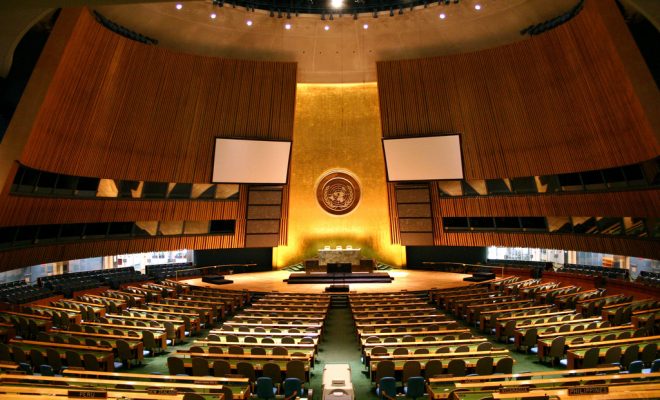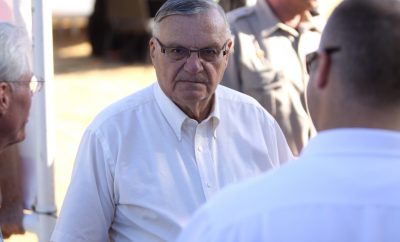
"UN General Assembly" Courtesy of [Patrick Gruban via Flickr]
World
What did Obama Talk about at his Final U.N. General Assembly Address?
Rising seas and warming temperatures. A nuclear-ambitious Iran. An erratic and dangerous North Korea. The unmooring and uneven tides of international trade. A global terrorism menace in the Islamic State; a global tragedy in the refugee crisis borne out of a warring Syria. These are some of the global challenges President Obama has faced during his tenure in the White House.
On Tuesday, in front of representatives from nearly every country on the planet, Obama delivered a speech defending his (at times controversial) diplomatic approach to foreign policy, and highlighting the global challenges that will transcend his years in office. Here are the highlights of Obama’s eighth and final speech at the U.N. General Assembly headquarters in New York:
Global Integration
In countries around the world, movements are bubbling that, along with other sentiments, center around the uncomfortable effects of globalization: Trump and Bernie Sanders, a one-time Democratic presidential hopeful, have earned scores of followers for ripping trade deals. Britain elected to leave the world’s largest trade market in the European Union with Brexit.
In his speech on Tuesday, Obama reflected on the genuinely disruptive and for the least advantaged, disturbing, trends of globalization, but also commented on why embracing its flow is vital for a prosperous future.
“The answer cannot be a simple rejection of global integration,” he said. “We should work together to make sure the benefits of global integration are broadly shared.” Obama, who delivered his remarks later than scheduled, said the world needs a “course-correction” in its trend toward greater integration. “Too often those trumpeting globalization have ignored inequality,” he said.
As he prepares to leave office in January, Obama continues to push his signature global trade deal–the Trans-Pacific Partnership, or TPP–through Congress. It’s unlikely the 12-nation deal will pass Congress before year’s end.
Global Security
One day after a man was arrested for dropping bombs in New Jersey and Manhattan, Obama addressed the world’s prime exporter of terrorism: the Islamic State. Calling the group, commonly referred to as ISIS, a “mindless medieval menace,” Obama defended his diplomacy-heavy approach to confronting the group’s presence in Syria, a country whose five-year civil war has killed nearly 500,000 and displaced millions more.
“There is a military component” to fighting ISIS, he said, but “in a place like Syria, there is no ultimate military victory to be won.”
Obama’s speech came a day after an aid convoy headed toward Aleppo–Syria’s second largest and hardest hit city–was attacked by government-launched airstrikes. He largely restrained from addressing the crumbling cease-fire agreement in Syria, but did call on all nations to do more to accommodate the refugees that continue to spill out of that war-torn country.
“We have to follow through even when the politics are hard,” he said, adding the world must “do more to open our hearts to help refugees who are desperate for a home.” He implored his globe-spanning audience to “imagine what it would be like for our family, for our children, if the unspeakable happened to us.”
Global Warming
And of course Obama spent considerable time speaking on a key concern of his administration, and one of its proudest achievements: climate change, and the Paris climate accord.
Before Obama spoke, U.N. Secretary General Ban Ki-Moon, who also will be finished with his term in January, took the lectern and voiced the threats all countries must contend with: “The Earth assails us with rising seas, record heat and extreme storms. And danger defines the days of many,” he said.
A touchstone accomplishment of the Obama administration, the Paris climate accord calls on nearly every country–developed and developing alike–to reduce its greenhouse gas emissions in the decades to come. Combating climate change, Obama said on Tuesday, is “not only the right thing to do, it’s the smart thing to do.” He also warned of potential conflicts if climate change continues down its current path.








Comments